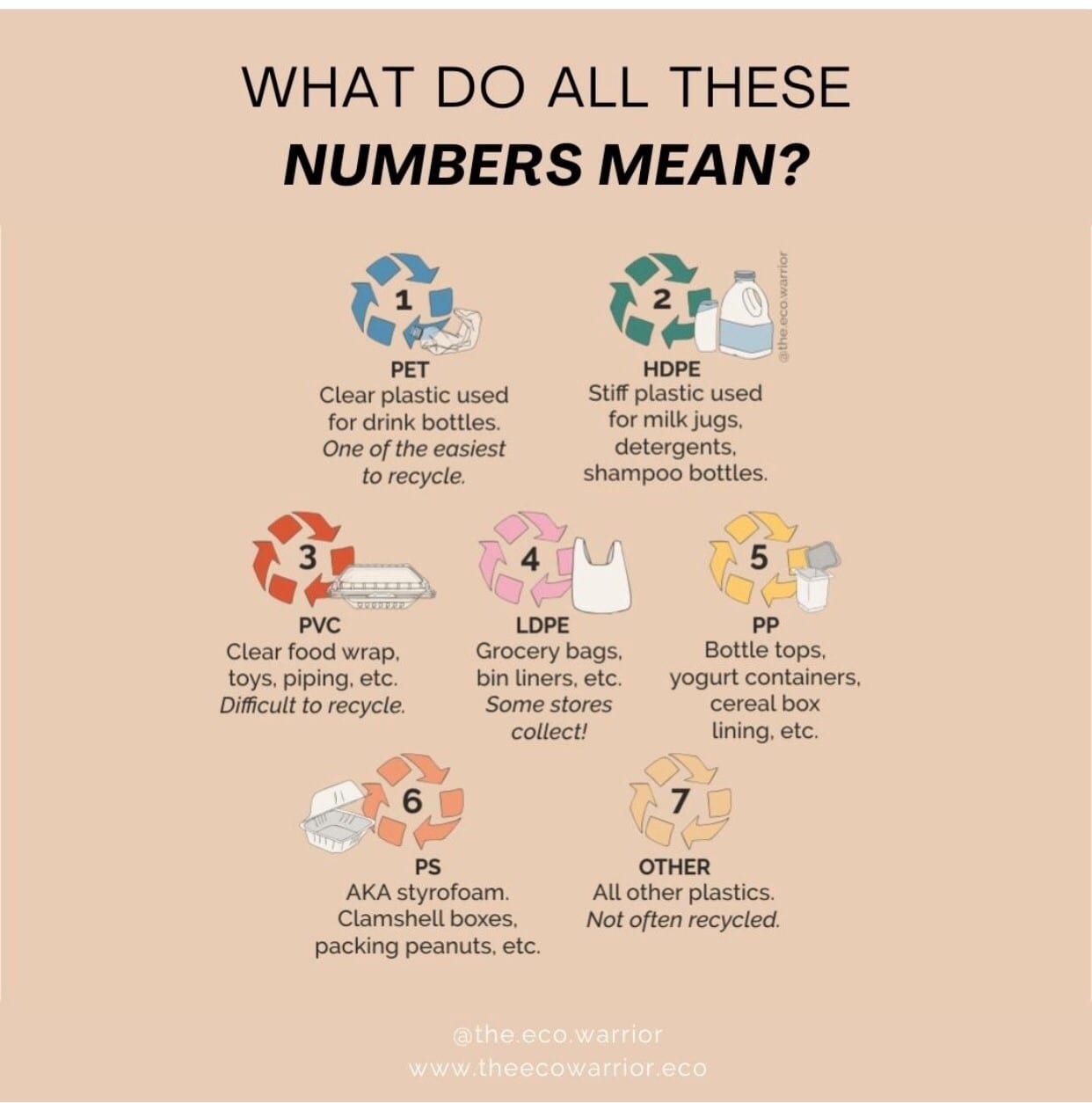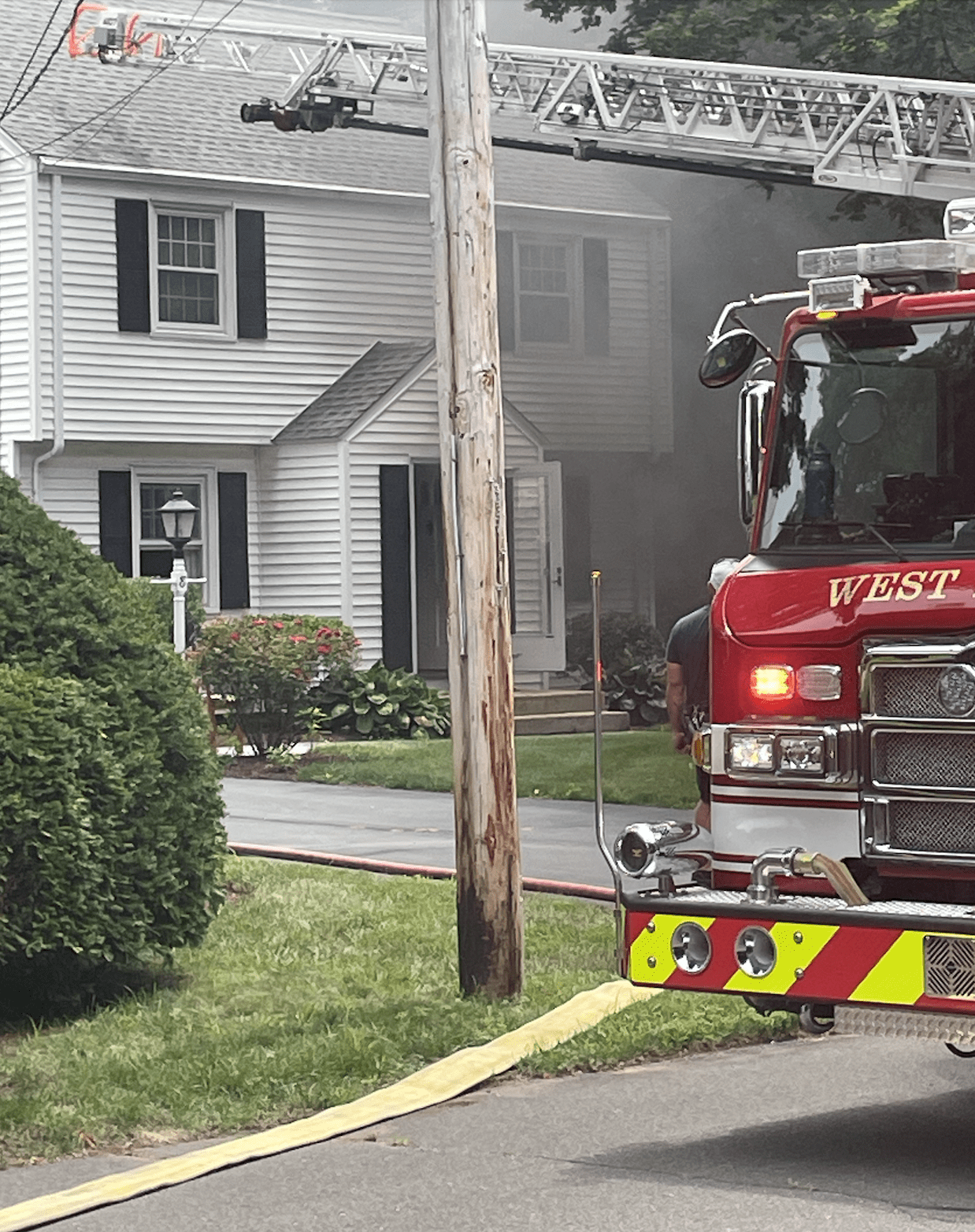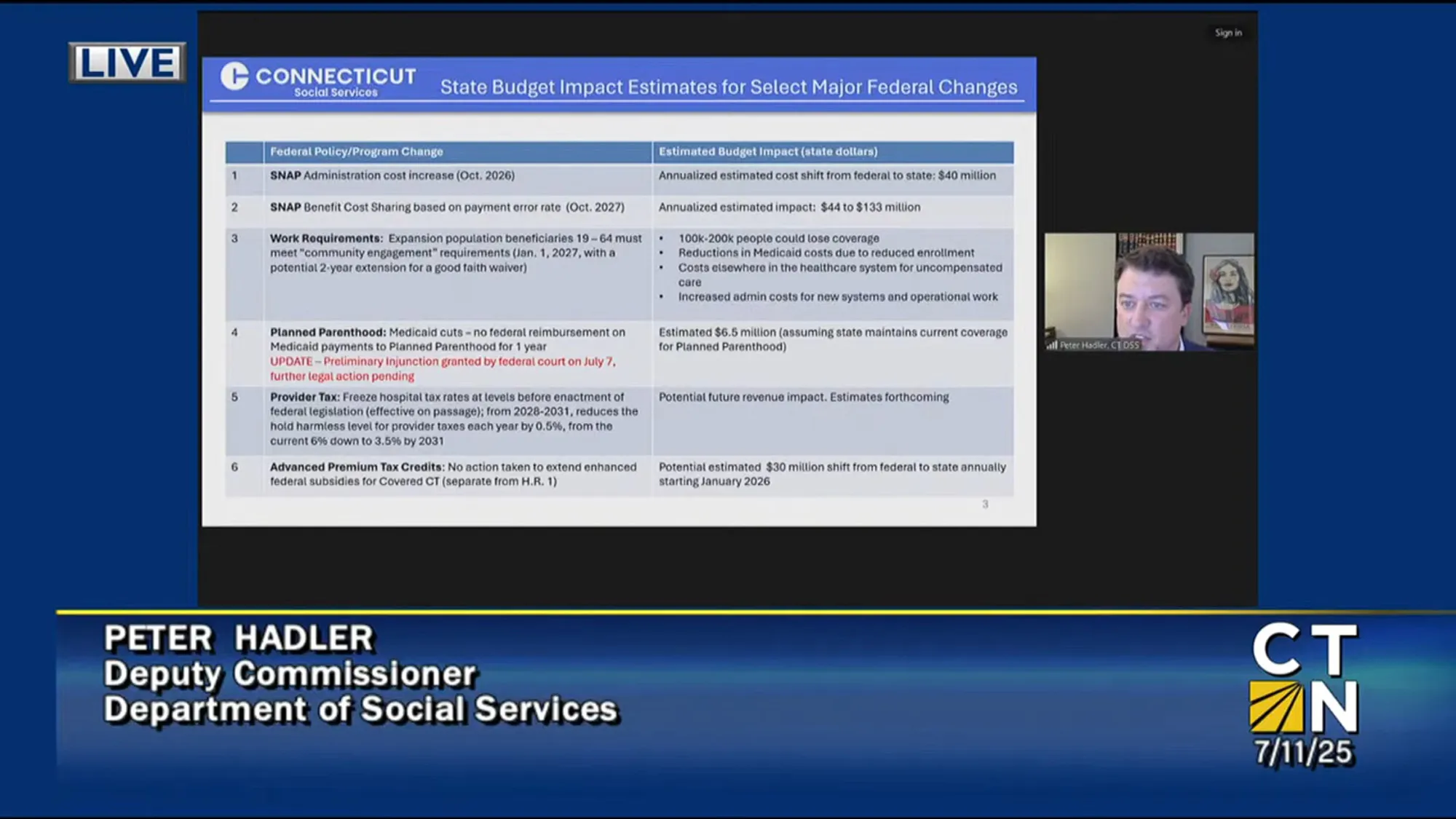West Hartford Recycles: ‘Recycling Triangles’ Don’t Mean What You May Think They Do

Audio By Carbonatix

Courtesy image
Misinterpreting recycling triangles can often lead to ‘wish-cycling.’
By Katherine Bruns, West Hartford Recycling Coordinator
Did you know the numbers in recycling triangles are for industry to be able to identify the type of resin (plastic) in a material and do not indicate that the item is allowed in municipal recycling streams?
These triangles and numbers confuse consumers into thinking a lot of material is allowed in Connecticut’s curbside recycling barrel. Just because there are “chasing arrow” recycling triangles on an item does not mean it is allowed in the state’s recycling stream.
RULE OF THUMB: Go by shape and size, not by number (even though most #1s and #2s are ok)
Think Shape: Bottles, tubs, jugs and jars.
Think Size: Must be larger than 2 inches diameter
Some examples:
- Styrofoam has a recycling number but it is never allowed in Connecticut’s recycling stream. In fact there are very few places that bother to recycle Styrofoam.
- Plastic bags have the triangle but they are not allowed in curbside recycling. They can be recycled at store drop-off locations. See plasticfilmrecycling.org for more information.
- Black plastic has a number but is not allowed in Connecticut curbside recycling because there is no market for it.
- Prescription bottles have numbers but they are too small to be captured by recycling machinery and fall through machinery. They are trash.
Unfortunately, many things are just plain trash – no matter how much we wish they weren’t. “Wish-cycling” is when material is put in recycling that is not allowed but we wish it were. Wish-cycling costs money and wastes energy. We save money and energy by not wish-cycling.
So what can we do about so much material that is not recyclable?
First, we all have power to change how we shop and to decide whether the convenience of certain items is worth the environmental cost. We have purchasing power! When possible choose products without packaging, or in reusable packaging or in packaging we know is allowed in recycling.
Manufacturers are under increasing pressure to decrease the amount of packing and ensure that whatever packaging they do create is easily recyclable. Let’s keep up this pressure! It’s called EPR – Extended Producer Responsibility.
We’ll talk about that next time!
Like what you see here? Click here to subscribe to We-Ha’s newsletter so you’ll always be in the know about what’s happening in West Hartford! Click the blue button below to become a supporter of We-Ha.com and our efforts to continue producing quality journalism.




Thank you for this article! Always great to learn about ways we can all help. But sad to know that what we’re thought to believe is recyclable actually is not. I wish there were some true standards we all understood and were easy to follow. Thanks again!